Blog

Small Gardens, Big Impact: Urban Abundance
In these colder months, we are highlighting gardens of Western Pennsylvania that inspire us with their beauty and their positive impact on the environment.
Melani Cheers of Troy Hill received this year’s Phipps Sustainable Garden Award in the category of Abundant Edible Gardens. Melani’s garden is a testament to the abundance and diversity of food that can be grown on an urban side lot.
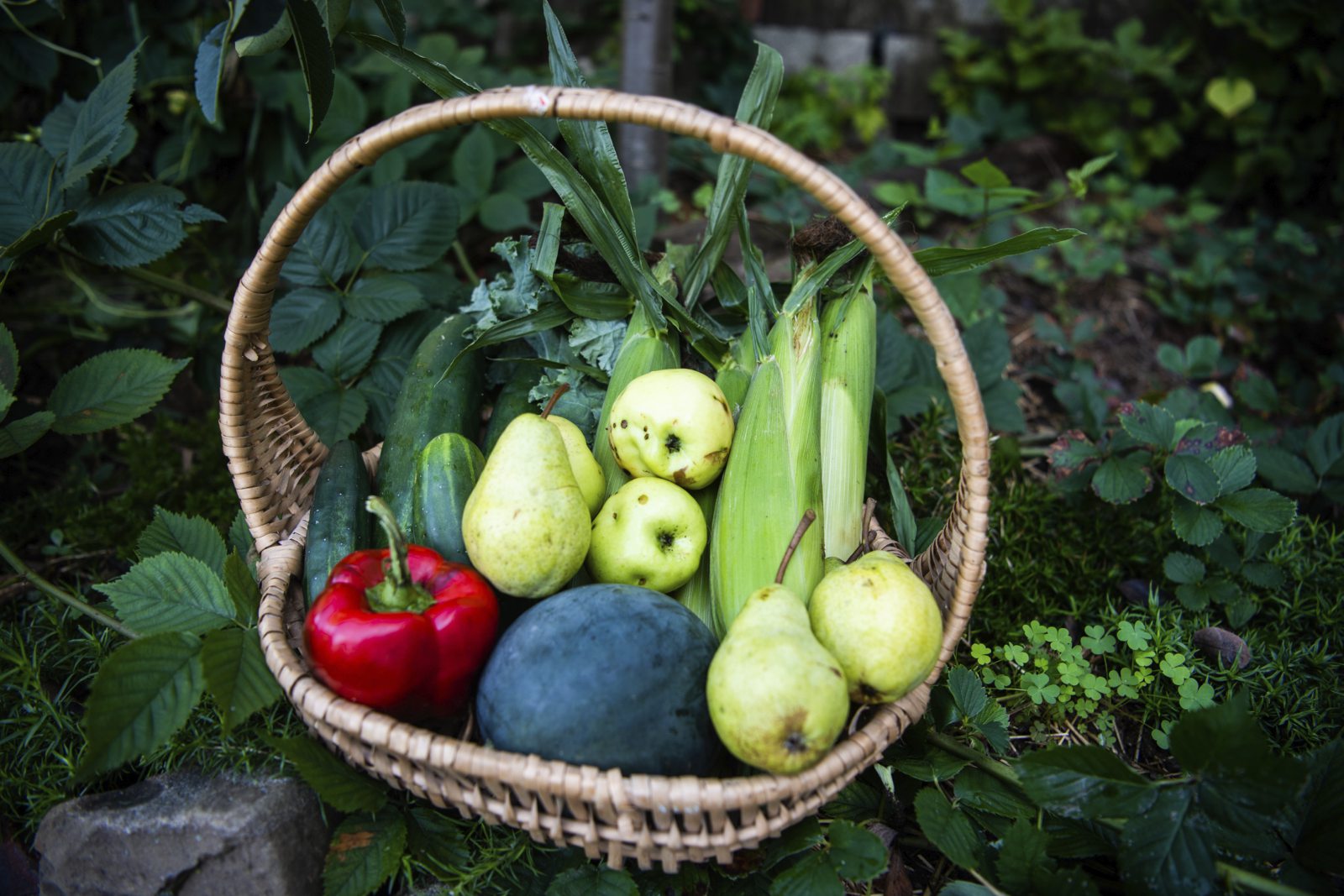
“Rising from the ruin of demolished buildings, our garden took root on the vertical assent of Troy Hill, overlooking the City,” says Melani. It took years of dedication and hard work to clear the forgotten lot, next to her Troy Hill home, of the rubble and building debris covered in poison ivy, rose of Sharon, and Ailanthus. All of these aggressive plants needed to be removed and the rubble cleared before planting could take place. In fact, Melani re-used the rubble as dry-stacked terrace walls to hold tiers of garden beds.


Once the land was cleared, it was amended with literal "tons" of organic soil and mushroom compost to provide healthy growing medium for fruit trees and other plants. Melani has maintained the health of the soil by using sheet mulching techniques of layering cardboard with the waste bedding from pet rabbits, sawdust from a local wood worker and wood mulch. In addition, they add compost from kitchen waste and import manure from a local farm to supplement the perennial beds. Over time all of this organic material breaks down and feeds soil life creating a healthy soil.


With new soil in place, Melani planted the dry stack terrace gardens with blueberry bushes, apple trees, pear trees, mulberries, paw-paws, gooseberry shrubs, black berry and red raspberry canes with ground covers of creeping strawberry and phlox. The hillside garden produces many perennial fruits and berries and a variety of vegetables for eating and storage. Tasty vegetable treats of sugar snap peas, green beans, cucumbers and cherry tomatoes are planted all though the garden for Melani’s kids to pick and snack on. Melani and her family enjoy fresh summer meals with the zucchini, tomatoes, peppers, beans, carrots and lettuce supplied by the garden. Along with this bounty, herbs of chives, basil, dill and oregano are grown and butternut squash, kale and other greens produce late into the fall.
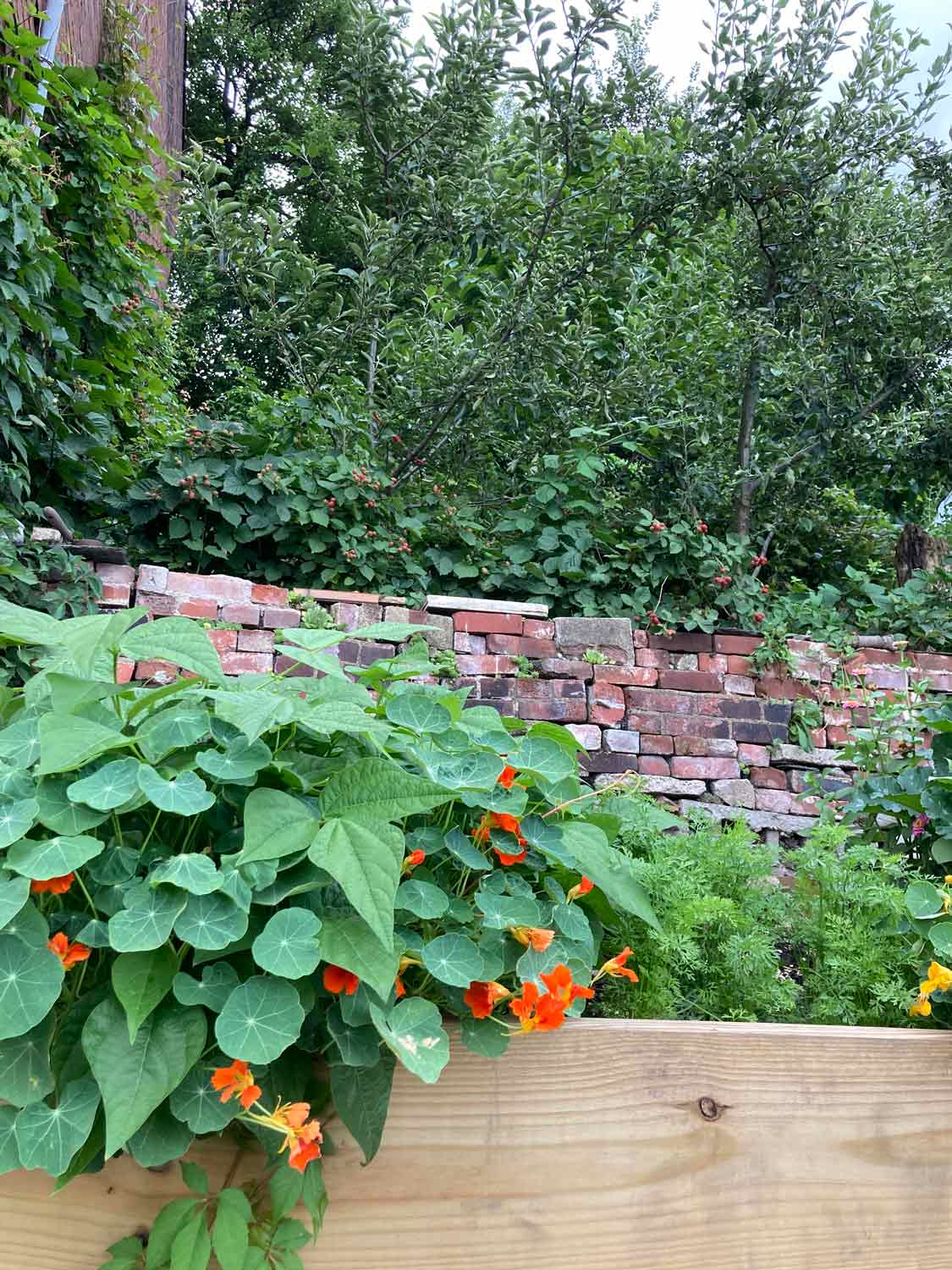
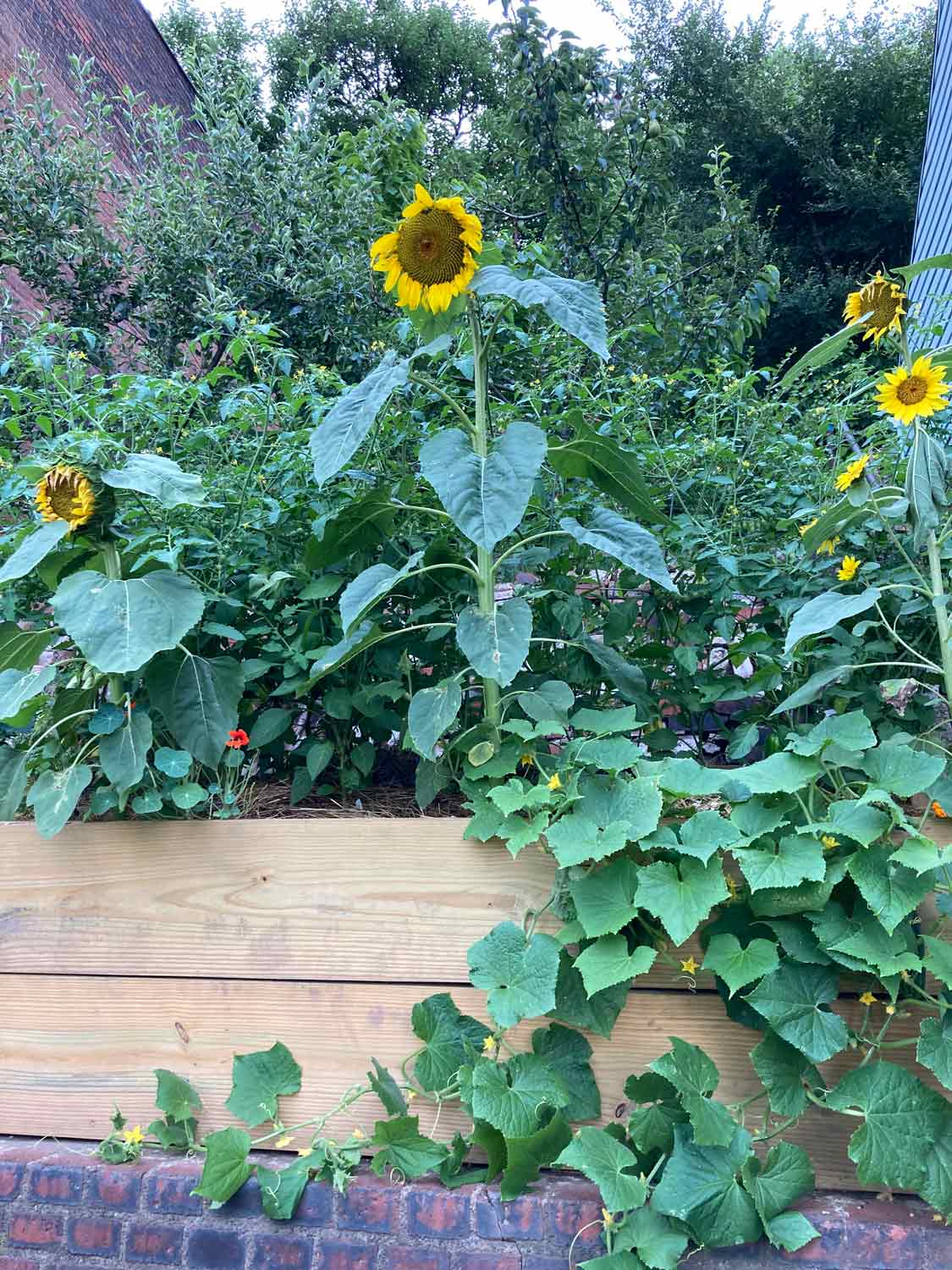
In addition to growing food for her family and friends, Melani plants native species for supporting wildlife. The garden has butterfly weed, bee balm, black eyed Susan, columbine, coreopsis, lobelia and purple coneflower that bees, butterflies and other pollinators enjoy. And of course birds and chipmunks come for the berries, sunflowers and other fruit. The garden produces much to share and Melani enjoys the visits from cardinals, robins, purple finches and jays.
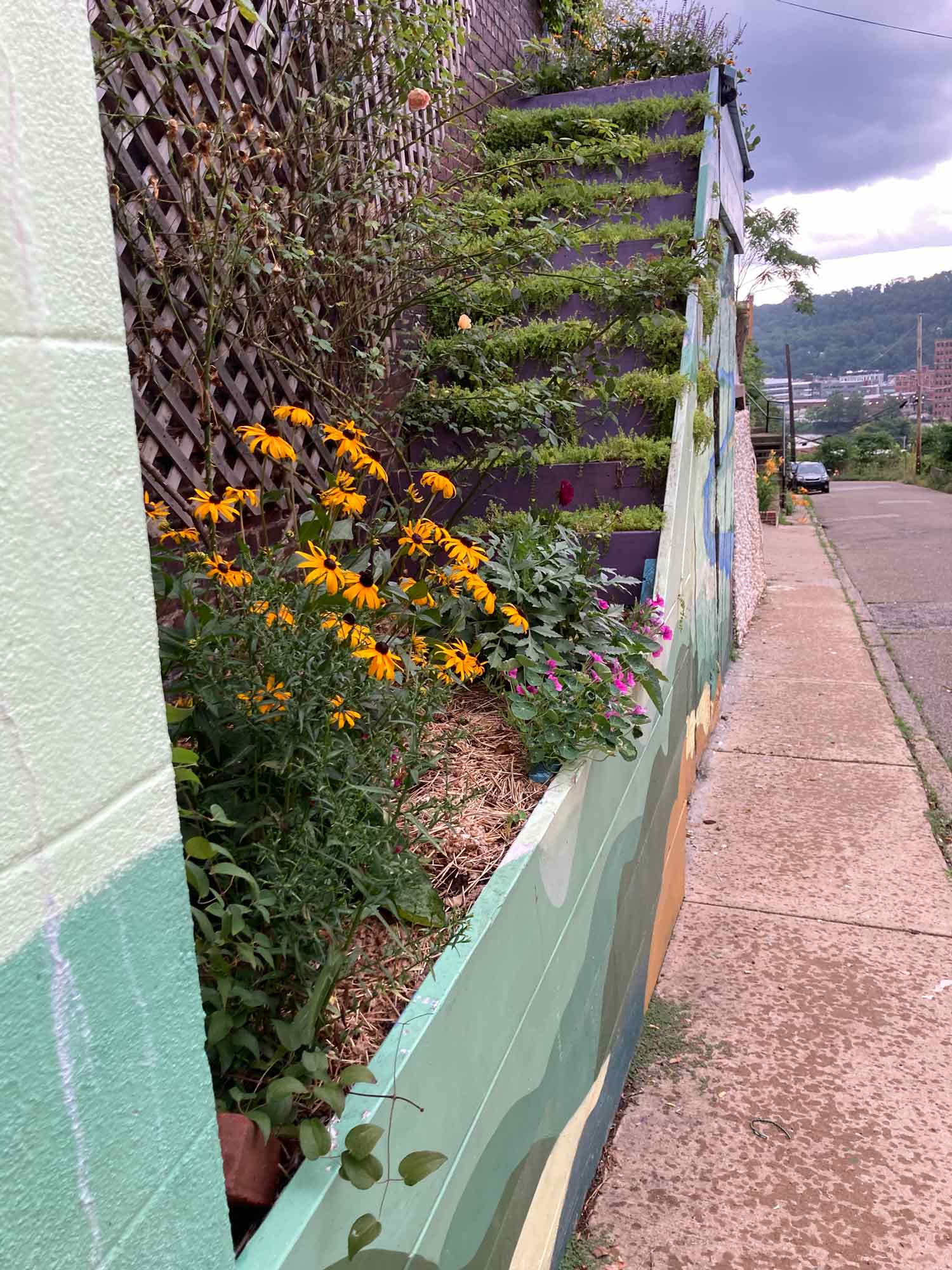
With innumerable hours of physical labor moving rubble, hauling soil and planting and caring for her garden, Melani has created an abundant garden that feeds her family and improves the urban ecosystem. “Our garden is an oasis in the heart of the city,” says Melani.
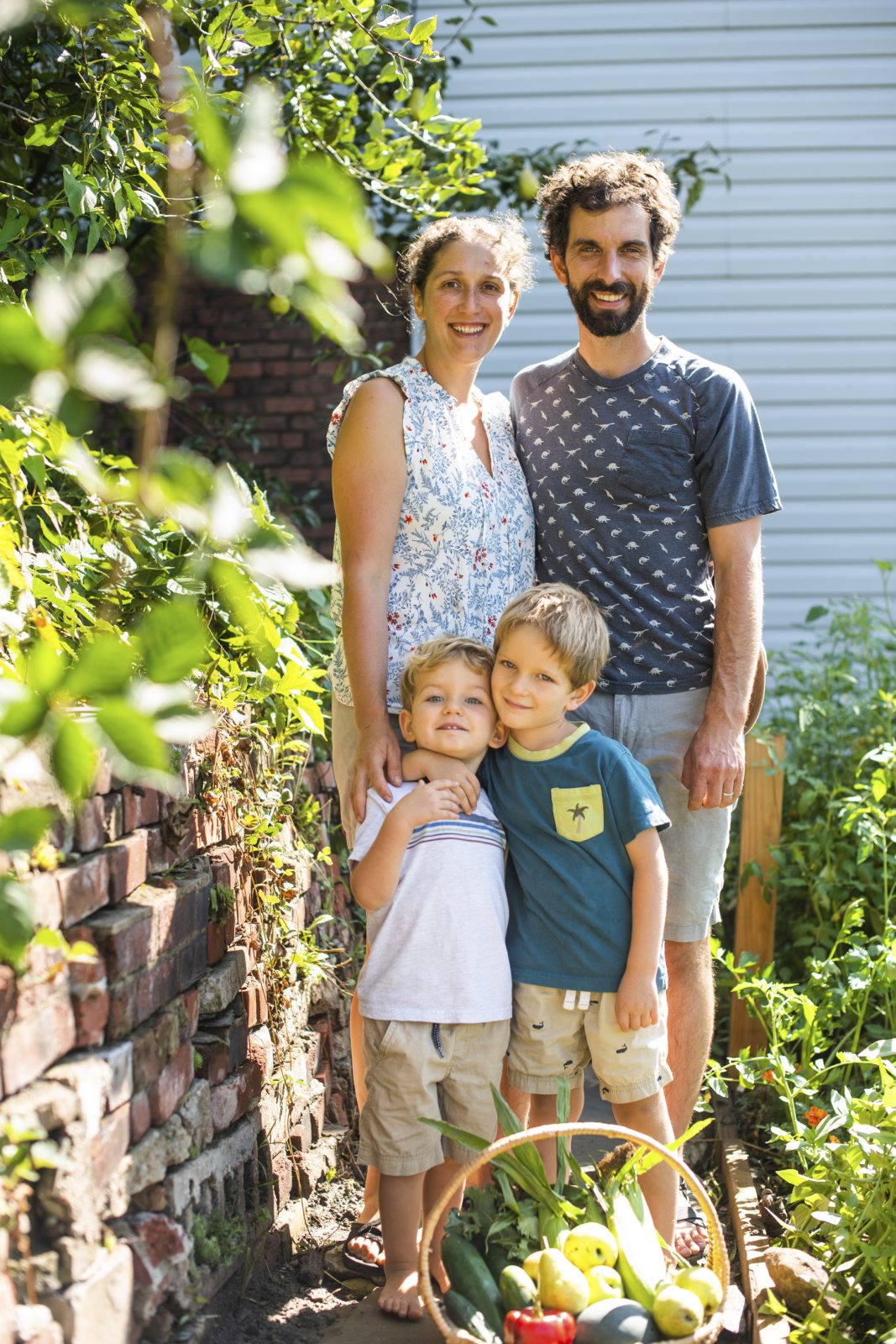
Select photos © Shane Dunlap

